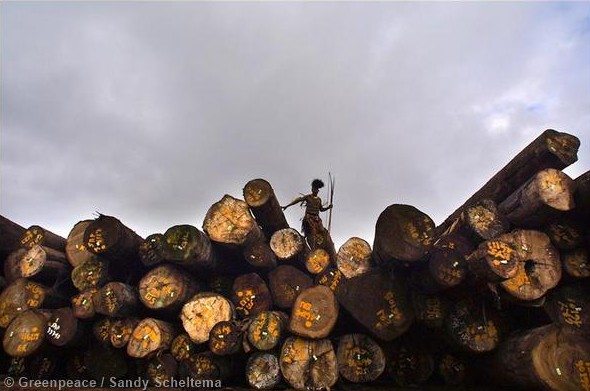Greenpeace’s forests campaign has been investigating the trade of illegally logged wood products in critical, high forest-covered regions that include Indonesia, Brazil, and Congo Basin. Since the launch of Greenpeace’s forests campaign, Greenpeace has conducted field investigations in the Amazon and the Congo Basin to expose illegalities endemic in the trade of the high-end wood species such as Ipe, Big-Leaf Mahogany, Ramin, and Afromorsia.
Individuals around the world have a role to play in combating illegal logging. It is key to strengthen and enforce laws that prohibit the trade of illegally logged wood products and demand that retailers ensure all wood products are of legal origin. Furthermore, many large-scale construction projects utilize Ipe and other tropical hardwoods from high-risk regions to build piers, boardwalks, and siding. Individuals can demand that their local governments only fund or permit projects that use timber that is legally and responsibly produced.
What Qualifies as Illegal Logging?
Illegal logging includes:
- Using corrupt means to gain access to forests
- Cutting down trees without permission or in protected areas
- Cutting down protected tree species
- Extracting more timber than legally permitted
- Fraudulent customs declarations when crossing international borders
- Evading taxes and other charges on timber
While the environmental impacts of illegal logging are clear and well known, the social consequences are just as devastating. As an illicit and unregulated industry, child and forced labor, violation of indigenous land rights, and hazardous working conditions all go hand in hand with illegal logging across the world.

